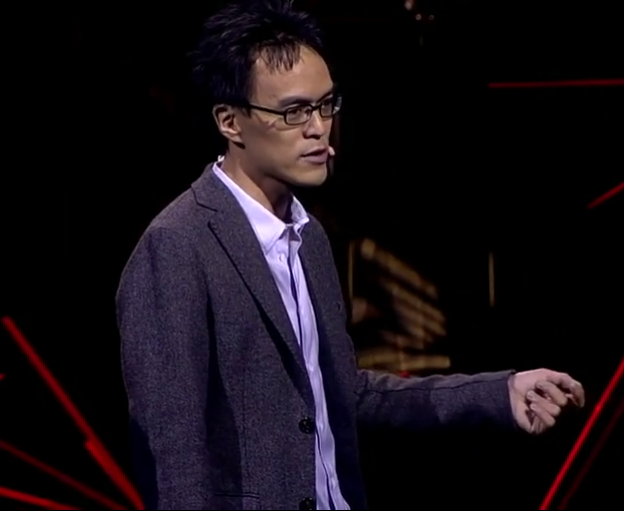For example, most other Germanic language speakers
例如,说日尔曼语系的人
feel completely comfortable talking about rain tomorrow by saying, "Morgen regnet es,"
会很自然的用以下的话表达明天下雨:“Morgen regnet es”
quite literally to an English ear, "It rain tomorrow."
说英语的人听了就类似“It rain tomorrow.”
This led me, as a behavioral economist, to an intriguing hypothesis.
这让我,作为一个行为经济学家,想到一个有趣的假设。
Could how you speak about time, could how your language forces you to think about time,
你描述时间的方式,你的语言迫使你思考时间的方式,
affect your propensity to behave across time?
是否会影响到你对不同时间段的偏好?
You speak English, a futured language.
你们说的是英语,区分将来时态的。

And what that means is that every time you discuss the future, or any kind of a future event,
这意味着每次你谈论到未来的时间,或者未来要发生的事情时,
grammatically you're forced to cleave that from the present
你需要在语法层面将未来和现在分来,
and treat it as if it's something viscerally different.
就像是两者之间有本质不同一样。
Now suppose that that visceral difference makes you subtly dissociate the future from the present every time you speak.
现在假设这种语言上的差别让你每次说话的时候都意识到当下和未来细微差别。
If that's true and it makes the future feel like something more distant and more different from the present,
如果这个假设成立,会导致“未来”看起来跟“现在”更加遥远一些,
that's going to make it harder to save.
要你存钱就会困难一些。
If, on the other hand, you speak a futureless language, the present and the future, you speak about them identically.
另一方面,如果你的语言没有区分将来时态,你说现在和未来的句式是一样的。
If that subtly nudges you to feel about them identically, that's going to make it easier to save.
这点细微的差别会让你觉得他们是一样的,会让你更倾向于存钱。
Now this is a fanciful theory. I'm a professor, I get paid to have fanciful theories.
现在我有了一套奇特的理论。我是教授,教授就是生产奇思怪想的。
But how would you actually go about testing such a theory?
但是你怎么检验这样一套理论呢?
Well, what I did with that was to access the linguistics literature.
我阅读了大量的语言学文献作为调研。
And interestingly enough, there are pockets of futureless language speakers situated all over the world.
有意思的是,没有将来时态的语言,全球各地都有。
This is a pocket of futureless language speakers in Northern Europe.
欧洲北部也有一些语言没有将来时态。












